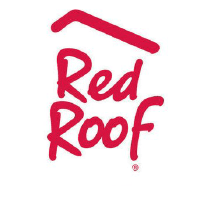
City Express by Marriott
How much does City Express by Marriott cost?
Initial Investment Range
$2,738,400 to $4,867,900
Franchise Fee
$37,471,500 to $51,428,400
The franchisee will establish and operate a City Express by Marriott mid-scale hotel.
Enjoy our partial free risk analysis below
Unlock the full risk analysis to access 9 more categories covering 100+ risks.
City Express by Marriott March 31, 2025 FDD Risk Analysis
Free FDD Library AI Analysis Date: July 16, 2025
DISCLAIMER: Not Legal Advice - For Informational Purposes Only. Consult With Qualified Franchise Professionals.
Franchisor Stability Risks
Start HereDisclosure of Franchisor's Financial Instability
Medium Risk
Explanation
The franchisor, MIF, L.L.C. (MIF), presents audited financial statements showing strong profitability and positive net worth. However, the notes reveal MIF is highly dependent on its parent, Marriott International, Inc., for capitalization via a large inter-company note receivable ($443 million) and for operational cost allocations. While MIF appears financially stable, its health is directly tied to the continued financial strength and support of its parent company. Your success may depend on a separate entity's stability.
Potential Mitigations
- An accountant should review the consolidated financial statements of the parent company, Marriott International, Inc., to assess its overall financial health.
- It is wise to discuss with your franchise attorney the implications of the franchisor's dependence on its parent and any guarantees provided.
- Your financial advisor can help you assess the risk associated with the inter-company debt structure shown in the franchisor's financials.
High Franchisee Turnover
Low Risk
Explanation
This risk was not identified in the FDD Package. Item 20 data shows the system is new, with only one franchised outlet open as of year-end 2024 and no history of terminations, non-renewals, or other cessations. High franchisee turnover is a critical indicator of potential systemic problems, so the lack of historical data for this new brand is itself a risk factor that should be considered.
Potential Mitigations
- Engaging a business advisor to monitor franchisee satisfaction and system health as the brand grows is a prudent long-term strategy.
- Since no turnover data exists, speaking with the initial franchisees and those with signed agreements is crucial for your due diligence.
- Your franchise attorney can help you understand the risks associated with investing in a new system with no performance history.
Rapid System Growth
Low Risk
Explanation
This risk was not identified in the FDD package. Item 20 indicates the system is in its infancy, with only one unit open at the end of 2024 but 25 agreements signed. This represents planned rapid growth, not historical growth. While rapid growth can strain franchisor resources, the franchisor's financials in Item 21, backed by a major parent company, appear structured to handle this expansion. The risk is prospective rather than a current issue.
Potential Mitigations
- Your business advisor can help you evaluate whether the franchisor's support infrastructure is scaling adequately with its planned growth.
- It is important to ask the initial franchisees about the quality and timeliness of the support they are currently receiving.
- An accountant should review the franchisor's financial statements to confirm it has the resources to support its growth targets.
New/Unproven Franchise System
High Risk
Explanation
City Express by Marriott is a new franchise system in the United States and Canada, launched in July 2024. Item 20 shows only one franchised hotel was open as of the end of 2024. Furthermore, Item 13 discloses that the principal trademarks are not yet federally registered. Investing in an unproven system carries significant risks, including the lack of an established brand reputation, operational track record, and predictable market performance, which could affect your potential success.
Potential Mitigations
- A thorough due diligence process, guided by your business advisor, should include speaking with the earliest franchisees about their experiences.
- Your accountant can help you create financial projections with conservative assumptions, given the lack of historical performance data.
- Consulting your franchise attorney is crucial to understand the risks associated with the unregistered trademarks and to potentially negotiate more protective terms.
Possible Fad Business
Low Risk
Explanation
This risk was not identified in the FDD Package. The business model, focused on mid-scale hotels, is a well-established concept in the lodging industry and is not based on a current fad. While consumer preferences change, the core offering of lodging accommodations has sustained, long-term demand. The franchisor is a subsidiary of Marriott International, Inc., a company with extensive experience in the hotel industry, which suggests a focus on long-term viability rather than short-lived trends.
Potential Mitigations
- A business advisor can help you research the long-term stability and competitive landscape of the mid-scale hotel market in your area.
- Engaging with your attorney to understand how the franchise agreement allows for system evolution could provide insight into long-term adaptability.
- Your own market research should confirm sustained local demand for this type of lodging.
Inexperienced Management
Low Risk
Explanation
This risk was not identified in the FDD Package. Item 2 shows that the directors and principal officers of the parent company, Marriott International, Inc., have extensive and long-standing experience in the lodging and franchise industries. The management team for the City Express brand itself is drawn from experienced executives within the broader Marriott system. This depth of relevant experience in both the specific industry and in managing large-scale franchise systems is a significant mitigating factor against this risk.
Potential Mitigations
- Confirming the stability of the management team by asking about recent turnover is a sound step your business advisor can help with.
- It is still advisable to question current franchisees about their direct experiences with the management team's support and responsiveness.
- An attorney can help you review the backgrounds of key personnel listed in Item 2.
Private Equity Ownership
Low Risk
Explanation
This risk was not identified in the FDD Package. The franchisor, MIF, L.L.C., is a subsidiary of Marriott International, Inc. (MII), a publicly-traded corporation, not a private equity firm. While public companies also focus on shareholder returns, their operational incentives and investment horizons often differ from the typical short-to-medium-term exit strategies of private equity funds. This structure suggests a focus on long-term brand management and operational stability.
Potential Mitigations
- Understanding the ownership structure and its implications for long-term strategy is a valuable discussion to have with your business advisor.
- Your attorney can review the franchise agreement for any clauses related to assignment or change of control that could affect you if the franchisor is acquired.
- An accountant can analyze the parent company's public financial reports to understand its long-term financial health and strategy.
Non-Disclosure of Parent Company
Low Risk
Explanation
This risk was not identified in the FDD Package. Item 1 clearly discloses that the franchisor, MIF, L.L.C., is a subsidiary of Marriott International, Inc. (MII), its parent company. Furthermore, Item 21 provides audited financial statements for the franchisor entity itself. While the franchisor is a distinct legal entity, the document is transparent about its relationship with and dependence on the parent company, which is a positive disclosure practice.
Potential Mitigations
- It is prudent to have your accountant review the financials of both the franchisor (MIF) and the parent (MII) to get a complete picture of financial stability.
- Your attorney can help clarify the legal and financial relationship between the parent and the subsidiary franchisor.
- A business advisor can help you research the public records and reputation of the parent company.
Predecessor History Issues
Low Risk
Explanation
This risk was not identified in the FDD package. Item 1 states the franchisor, MIF, L.L.C., was established in 2012. It also discloses the City Express brand was acquired from a Mexican company, HCity, in 2023. While the brand is new to the U.S. market, the FDD appears to properly disclose the predecessor relationship for the brand itself. There is no indication of hidden or negative history being obscured from a prior franchisor entity.
Potential Mitigations
- Your attorney can review the disclosures regarding predecessors to ensure they comply with legal requirements.
- It's beneficial to ask the franchisor about the integration of the acquired brand and any challenges encountered.
- A business advisor can help you research the history of the City Express brand in its original markets if you have concerns.
Pattern of Litigation
High Risk
Explanation
Item 3 discloses a significant volume of material litigation against the franchisor's parent, Marriott International, Inc. (MII). This includes numerous class-action lawsuits following a 2018 data security breach, as well as investigations by multiple state and international authorities regarding resort fees. Notably, a jury returned a $16 million verdict against MII and a franchisee on an agency theory. This pattern of litigation may indicate systemic issues and could portend future legal challenges or increased costs for franchisees.
Potential Mitigations
- Your attorney must carefully review all litigation summaries in Item 3 to assess the potential impact on the franchise system.
- Discuss the 'Hall v. Marriott' case with your attorney to understand the potential for agency liability risk.
- Questioning the franchisor about its strategies for addressing the issues raised in these lawsuits is an important part of due diligence.
Disclosure & Representation Risks
Example Risk: Franchisee Financial Obligations
Blue Risk
Explanation
This risk involves the financial obligations that a franchisee must meet, including initial fees, ongoing royalties, and other required payments. Understanding these obligations is crucial for long-term success.
Potential Mitigations
- Carefully review the Franchise Disclosure Document (FDD) and consult with a franchise attorney to fully understand all financial commitments before signing.
- Conduct regular risk assessments
- Implement monitoring and reporting systems
Unlock Full Risk Analysis
Purchase the complete risk review to see all 102 risks across all 10 categories.
Financial & Fee Risks
Example Risk: Franchisee Financial Obligations
Blue Risk
Explanation
This risk involves the financial obligations that a franchisee must meet, including initial fees, ongoing royalties, and other required payments. Understanding these obligations is crucial for long-term success.
Potential Mitigations
- Carefully review the Franchise Disclosure Document (FDD) and consult with a franchise attorney to fully understand all financial commitments before signing.
- Conduct regular risk assessments
- Implement monitoring and reporting systems
Unlock Full Risk Analysis
Purchase the complete risk review to see all 102 risks across all 10 categories.
Legal & Contract Risks
Example Risk: Franchisee Financial Obligations
Blue Risk
Explanation
This risk involves the financial obligations that a franchisee must meet, including initial fees, ongoing royalties, and other required payments. Understanding these obligations is crucial for long-term success.
Potential Mitigations
- Carefully review the Franchise Disclosure Document (FDD) and consult with a franchise attorney to fully understand all financial commitments before signing.
- Conduct regular risk assessments
- Implement monitoring and reporting systems
Unlock Full Risk Analysis
Purchase the complete risk review to see all 102 risks across all 10 categories.
Territory & Competition Risks
Example Risk: Franchisee Financial Obligations
Blue Risk
Explanation
This risk involves the financial obligations that a franchisee must meet, including initial fees, ongoing royalties, and other required payments. Understanding these obligations is crucial for long-term success.
Potential Mitigations
- Carefully review the Franchise Disclosure Document (FDD) and consult with a franchise attorney to fully understand all financial commitments before signing.
- Conduct regular risk assessments
- Implement monitoring and reporting systems
Unlock Full Risk Analysis
Purchase the complete risk review to see all 102 risks across all 10 categories.
Regulatory & Compliance Risks
Example Risk: Franchisee Financial Obligations
Blue Risk
Explanation
This risk involves the financial obligations that a franchisee must meet, including initial fees, ongoing royalties, and other required payments. Understanding these obligations is crucial for long-term success.
Potential Mitigations
- Carefully review the Franchise Disclosure Document (FDD) and consult with a franchise attorney to fully understand all financial commitments before signing.
- Conduct regular risk assessments
- Implement monitoring and reporting systems
Unlock Full Risk Analysis
Purchase the complete risk review to see all 102 risks across all 10 categories.
Franchisor Support Risks
Example Risk: Franchisee Financial Obligations
Blue Risk
Explanation
This risk involves the financial obligations that a franchisee must meet, including initial fees, ongoing royalties, and other required payments. Understanding these obligations is crucial for long-term success.
Potential Mitigations
- Carefully review the Franchise Disclosure Document (FDD) and consult with a franchise attorney to fully understand all financial commitments before signing.
- Conduct regular risk assessments
- Implement monitoring and reporting systems
Unlock Full Risk Analysis
Purchase the complete risk review to see all 102 risks across all 10 categories.
Operational Control Risks
Example Risk: Franchisee Financial Obligations
Blue Risk
Explanation
This risk involves the financial obligations that a franchisee must meet, including initial fees, ongoing royalties, and other required payments. Understanding these obligations is crucial for long-term success.
Potential Mitigations
- Carefully review the Franchise Disclosure Document (FDD) and consult with a franchise attorney to fully understand all financial commitments before signing.
- Conduct regular risk assessments
- Implement monitoring and reporting systems
Unlock Full Risk Analysis
Purchase the complete risk review to see all 102 risks across all 10 categories.
Term & Exit Risks
Example Risk: Franchisee Financial Obligations
Blue Risk
Explanation
This risk involves the financial obligations that a franchisee must meet, including initial fees, ongoing royalties, and other required payments. Understanding these obligations is crucial for long-term success.
Potential Mitigations
- Carefully review the Franchise Disclosure Document (FDD) and consult with a franchise attorney to fully understand all financial commitments before signing.
- Conduct regular risk assessments
- Implement monitoring and reporting systems
Unlock Full Risk Analysis
Purchase the complete risk review to see all 102 risks across all 10 categories.
Miscellaneous Risks
Example Risk: Franchisee Financial Obligations
Blue Risk
Explanation
This risk involves the financial obligations that a franchisee must meet, including initial fees, ongoing royalties, and other required payments. Understanding these obligations is crucial for long-term success.
Potential Mitigations
- Carefully review the Franchise Disclosure Document (FDD) and consult with a franchise attorney to fully understand all financial commitments before signing.
- Conduct regular risk assessments
- Implement monitoring and reporting systems
Unlock Full Risk Analysis
Purchase the complete risk review to see all 102 risks across all 10 categories.











